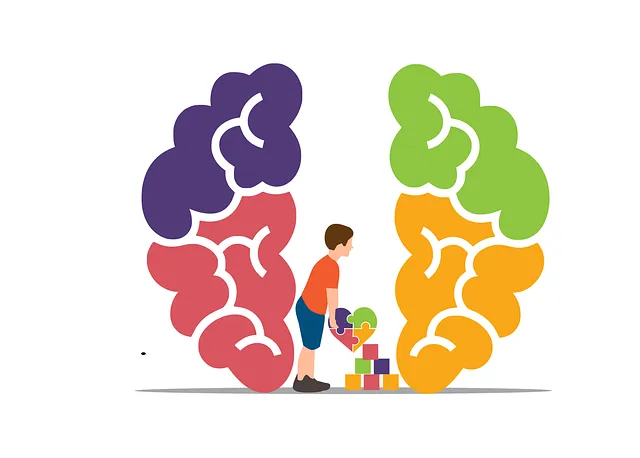Louisville's Crisis Intervention Teams (CIT), integrated into Louisville Kaiser Permanente, significantly enhance mental healthcare through immediate crisis support and comprehensive training. These teams, equipped with skills in de-escalation, stress management, and mindfulness, improve patient outcomes and well-being, ensuring better Louisville Kaiser Permanente mental health coverage. Their innovative approach, inspired by Kaiser Permanente's programs, has transformed crisis intervention services through empathy-building strategies and education, despite challenges like increased demand.
In the critical realm of mental healthcare, Crisis Intervention Teams (CITs) play a pivotal role in fostering well-being. This article explores the significance of CIT training programs, focusing on Louisville’s unique approach at Kaiser Permanente. We delve into how their initiatives enhance mental health coverage, improve crisis response, and benefit communities. By examining Louisville’s experience, we gain insights into strategies that can revolutionize CIT training across institutions, ultimately improving support for individuals in need within the Louisville Kaiser Permanente network and beyond.
- Understanding Crisis Intervention Teams: A Vital Component of Mental Health Care in Louisville
- The Role and Training of Crisis Intervention Team Members at Kaiser Permanente
- Louisville's Approach to Enhancing Mental Health Coverage: Benefits and Challenges for Crisis Intervention Teams
Understanding Crisis Intervention Teams: A Vital Component of Mental Health Care in Louisville

In Louisville, Crisis Intervention Teams (CIT) have emerged as a vital component of mental health care, especially in addressing growing concerns within the community. These specialized teams are designed to provide immediate and effective support to individuals experiencing severe mental health crises. By integrating CIT training into the fabric of local healthcare systems, such as Louisville Kaiser Permanente, there’s a significant shift towards enhancing patient outcomes and overall well-being.
The integration of these teams is crucial in mitigating risks associated with mental health emergencies. Through comprehensive training programs, including Risk Management Planning for Mental Health Professionals, CIT members learn to de-escalate situations, offer crisis intervention strategies, and connect individuals with appropriate long-term care. Additionally, practices like Stress Management and Mindfulness Meditation are incorporated into the curriculum, equipping professionals with tools to navigate complex scenarios while maintaining their emotional resilience.
The Role and Training of Crisis Intervention Team Members at Kaiser Permanente

At Louisville Kaiser Permanente, crisis intervention team (CIT) members play a vital role in providing immediate and effective support to individuals experiencing mental health crises. Their training programs are meticulously designed to equip healthcare providers with the necessary skills to navigate sensitive situations with compassion and professionalism. The CIT members undergo rigorous training focused on recognizing warning signs of mental distress, de-escalation techniques, and effective communication strategies.
These programs emphasize burnout prevention strategies for healthcare providers, fostering inner strength development, and promoting resilience in high-pressure environments. By integrating Mood Management techniques into their toolkit, CIT team members are better equipped to assist patients while safeguarding their own well-being. Louisville Kaiser Permanente’s commitment to comprehensive training ensures that its CIT members can offer compassionate, evidence-based interventions, contributing to improved patient outcomes and enhanced community mental health coverage.
Louisville's Approach to Enhancing Mental Health Coverage: Benefits and Challenges for Crisis Intervention Teams

Louisville’s innovative approach to enhancing mental health coverage through programs like those offered by Kaiser Permanente has brought significant benefits to their crisis intervention teams. By prioritizing mental wellness and implementing Empathy Building Strategies, Louisville has fostered a more compassionate and effective response to individuals in crisis. This initiative leverages the Mental Wellness Podcast Series Production as a tool to educate and connect team members, ensuring they are equipped with the latest knowledge and skills to support those facing mental health challenges.
However, navigating this enhanced coverage comes with its own set of challenges. The demand for services has increased substantially, testing the capacity of the crisis intervention teams. Additionally, keeping up with evolving best practices in mental health care requires continuous training and adaptation. Despite these hurdles, Louisville’s commitment to advancing mental wellness through comprehensive training programs sets a powerful example for other communities looking to improve their crisis response capabilities.
Crisis intervention team (CIT) training programs, as demonstrated by Louisville Kaiser Permanente’s initiatives, play a pivotal role in enhancing mental health care. By equipping healthcare professionals with the necessary skills to navigate and resolve crises effectively, these programs ensure that individuals in Louisville and similar cities benefit from improved access to quality mental health services. The integration of CIT training, coupled with Louisville’s efforts to expand mental health coverage, holds significant promise for reducing barriers to care and fostering better outcomes for those struggling with mental health challenges.






